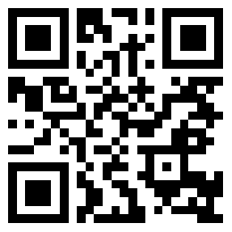【重磅】预防武汉病毒专文 The Wuhan Virus: How to Stay Safe 美国权威《外交政策》
各位读者,这是2020年1月25日美国权威杂志“外交政策”的头条文章,作者是著名的全球防疫专家之一,请大家高度重视,认真阅读,尽快采取相应对策。
《澳洲四大号外》为大众福祉,特刊供各位参考。如有错漏,以英文原文为准。欢迎转载传播。

1
The Wuhan Virus: How to Stay Safe
武汉病毒:如何保持安全
As the new Wuhan coronavirus has spread not only all over mainland China, but also worldwide, panic is rising. Inside China there is a growing sense of helplessness, as the government is compelled to take drastic measures to stop the virus, including introducing some travel restrictions in Beijing. I have received panicked queries from journalists and public health workers in China, asking, “How can we protect ourselves and our families?”
The epidemic could have been controlled fairly easily three weeks ago had there been more openness, swift action, and no attempted cover-up. But now it’s too late, and this virus is spreading globally. Because there is no vaccine or treatment for nCoV2019—the Wuhan pneumonia—and infection has spread throughout China, the government is forced to turn to its 2003 SARS playbook. And that means entire cities must be cut off, and the population of the nation must be restricted in its movements and potential disease-spreading behavior. It is not surprising then that travel out of Beijing may be forbidden; the entire mainland could go on lockdown soon.
I know people are very frightened. And I expect panic will rise in the coming days. But very simple measures can protect you.
During the SARS epidemic, I traveled all over China and Hong Kong, interviewed people infected with the virus, doctors and nurses treating the disease, government officials, police—everybody. I was never concerned that I would become infected, despite being in the room with sick individuals. And that’s because I knew what precautions to take.
随着中国的流行病继续蔓延,事情可能看起来很可怕。这里有十个简单的预防措施,可以防止你感染冠状病毒。
在SARS疫情期间,我走遍了中国和香港,采访了感染了病毒的人、治疗疾病的医生和护士、政府官员、警察。我从不担心自己会被感染,尽管我和病人在一起。那是因为我知道该采取什么预防措施。
2
Ten Points 十条忠告
Here are the most important ones to know:
以下是最重要的十条忠告:
#1
When you leave your home, wear gloves—winter mittens or outdoor gloves—and keep them on in subways, buses, and public spaces.
当你离开家时,戴上手套,冬季手套或户外手套,并在地铁、公共汽车和公共场所戴上。
#2
If you are in a social situation where you should remove your gloves, perhaps to shake hands or dine, do not touch your face or eyes, no matter how much something itches. Keep your hands away from contact with your face. And before you put your gloves back on, wash your hands thoroughly with soap and warm water, scrubbing the fingers. Put your gloves on.
如果你处于一个社交场合,你应该摘下手套,也许是握手或吃饭,不要触摸你的脸或眼睛,无论有多少东西痒。手不要接触你的脸。在你戴上手套之前,用肥皂和温水彻底洗手,擦洗手指。戴上手套。
#3
Change gloves daily, washing them thoroughly, and avoid wearing damp gloves.
每天更换手套,彻底清洗,避免戴潮湿的手套。
#4
Masks are useless when worn outdoors and may not be very helpful even indoors. Most masks deteriorate after one or two wearings. Using the same mask day after day is worse than useless—it’s disgusting, as the contents of your mouth and nose eventually coat the inside of the mask with a smelly veneer that is attractive to bacteria. I rarely wear a face mask in an epidemic, and I have been in more than 30 outbreaks. Instead, I stay away from crowds, and I keep my distance from individual people—a half meter, about 1.5 feet, is a good standard. If someone is coughing or sneezing, I ask them to put on a mask—to protect me from their potentially contaminated fluids. If they decline, I step a meter (about 3 feet) away from them, or I leave. Don’t shake hands or hug people—politely beg off, saying it’s better for both of you not to come in close contact during an epidemic.
在户外戴口罩是没用的,即使在室内也没什么用。大多数口罩戴了一两次就会变质。日复一日地使用同一个口罩比没用更糟糕——而且令人恶心,因为你的口鼻里的东西,最终会在口罩的内侧涂上一层对细菌有吸引力的发臭的贴面。我很少在流行病中戴口罩,而且我已经亲历过30多次病毒爆发事件。相反,我远离人群,与个人保持距离——起码半米,约1.5英尺,这是一个很好的距离标准。如果有人咳嗽或打喷嚏,我要求他们戴上口罩,以保护我免受他们可能受到污染的液体。如果对方拒绝,我就离他们一米(约3英尺)远,否则我就离开。不要握手或拥抱别人,礼貌地请求接近你的人离开,说你俩(恋爱中的情人)最好不要在流行病期间亲密接触。
#5
Inside your household, remove all of the towels from your bathrooms and kitchen immediately, and replace them with clean towels that have the names of each family member on them. Instruct everybody in your home to only use their own towels and never touch another family member’s. Wash all towels twice a week. Damp towels provide terrific homes for viruses, like common colds, flus, and, yes, coronaviruses.
在家里,立即把浴室和厨房里所有的毛巾都拿出来,换上干净的毛巾,上面写着每个家庭成员的名字。告诉你家里的每个人,只使用自己的毛巾,不要碰其他家庭成员的。每周洗两次所有的毛巾。湿毛巾为病毒提供了极好的家园,像普通感冒,流感,是的,冠状病毒很容易附着在湿的毛巾上。
#6
Be careful with doorknobs. If it’s possible to open and close doors using your elbows or shoulders, do so. Wear gloves to turn a doorknob—or wash your hands after touching it. If anybody in your home takes sick, wash your doorknobs regularly. Similarly, be cautious with stairway banisters, desktops, cell phones, toys, laptops—any objects that are hand-held. As long as you handle only your own personal objects, you will be ok—but if you need to pick up someone else’s cell phone or cooking tools or use someone else’s computer keyboard, be mindful of not touching your face and wash your hands immediately after touching the object.
小心门把手。如果可以用手肘或肩膀打开或关闭门,请这样做。戴上手套转动门把手或触摸后洗手。如果你家里有人生病了,就要经常[最好用酒精]洗你的门把手。同样,要小心楼梯扶手、台式电脑、手机、玩具、笔记本电脑等任何手提物品。只要你只处理自己的私人物品,你就可以了,但如果你需要拿起别人的手机或烹饪工具,或使用别人的电脑键盘,要注意不要触摸你的脸,触摸物品后立即洗手。
#7
If you share meals, do not use your personal chopsticks and utensils to remove food from a serving bowl or plate and, of course, tell your children to never drink out of anybody else’s cups or from a container of shared fluid. It is customary in China to prepare several dishes for a meal and then allow everybody at the table to use their personal chopsticks to pull food from the common dishes: Don’t do this until the epidemic is over. Place serving spoons in each dish and instruct everybody at the table to scoop what they want from the serving dishes onto their personal plates or bowls, return the serving spoon to the main dish, and then use their personal chopsticks only to pick food from their personal plate or bowl into their mouth. Wash all food and kitchenware thoroughly between meals and avoid restaurants that have poor hygiene practices.
如果你一起吃饭[一定要大家使用公筷],不要用你的筷子和餐具把食物从碗或盘子里拿出来,当然,也要告诉你的孩子,不要从别人的杯子里或是从一个容器里喝水。在中国,一顿饭要准备好几道菜,然后让餐桌上的每个人都用筷子从普通菜中取出食物:在疫情结束前,不要这样做[用公筷和公共汤勺]。把汤匙放在每一道菜里,让桌上的每个人,把他们想要的菜舀到他们的个人盘子或碗里,把餐匙放回主菜上,然后用他们的个人筷子只把食物从他们的个人盘子或碗里挑到嘴里。饭后彻底清洗所有食物和厨房用具,避免去卫生习惯差的餐馆。
#8
Absolutely do not buy, slaughter, or consume any live animal or fish until it is known what species was the source of the virus.
绝对不要购买、屠宰或食用任何活的动物或鱼,除非知道是什么物种的病毒源[不要购买任何蔬果外的生鲜鱼肉]。
#9
When the weather allows, open your windows at home or work, letting your space air out. The virus cannot linger in a well-ventilated space. But of course, if it is cold or the weather is inclement, keep warm and close those windows.
天气允许的时候,在家里或工作时打开窗户,让你的空间通风。病毒不能在通风良好的地方逗留。当然,如果天气寒冷或恶劣,要保暖并关上窗户。
#10
Finally, if you are caring for a friend or family member who is running a fever, always wear a tight-fitting mask when you are near them, and place one on the ailing person (unless they are nauseated). When you replace an old, dirty mask from the face of your friend or loved one be very, very careful—assume, for the sake of your protection, that it is covered in viruses, and handle it while wearing latex gloves, place it inside of a disposable container, seal it, and then put it in the trash. While wearing those latex gloves, gently wash the patient’s face with warm soap and water, using a disposable paper towel or cotton swab, and seal it after use in a container or plastic bag before placing it in your household trash. Wear long-sleeved shirts and clothing that covers your body when you are caring for your ailing friend or relative. Clean everything your patient wears or touches very thoroughly in hot soapy water, including sheets, towels, and utensils. If you have space, isolate the sick person in your household in a room, or a corner of a room, where they are comfortable, but separated from the rest of the household. If the weather is tolerable, open a window that is on the opposite side of the room, so that air gently blows past the patient’s face and then outdoors. Of course, don’t do this if it is very cold, as your friend or loved one will be made sicker if uncomfortably cold.
最后,如果你在照顾一个发烧的朋友或家人,当你靠近他们时,一定要戴上一个紧身口罩,并给生病的人戴上一个(除非他们恶心)。当你从你的朋友或爱人的脸上换掉一个旧的、脏的口罩时,要非常、非常小心地处理,为了保护你自己,要戴着乳胶手套处理它(因为它已经被病毒覆盖),把它放在一次性容器里[密封塑料袋],密封,然后把它放进垃圾桶。戴上这些乳胶手套时,用温热的肥皂和水,用一次性纸巾或棉签轻轻地清洗病人的脸,使用后在容器或塑料袋中密封,然后再放入家庭垃圾桶中。
当你照顾生病的朋友或亲戚时,穿上长袖衬衫和覆盖身体的衣服。用热肥皂水彻底清洗患者穿戴或接触的所有物品,包括床单、毛巾和餐具。
如果你有空间,把你家里的病人隔离在一个房间里,或者房间的一个他们感觉舒服的角落里,但是和家里其他人分开。如果天气可以忍受[不是非常寒冷],打开房间另一侧的窗户,让空气轻轻地吹过病人的脸,然后吹到室外。当然,如果天气很冷就不要这样做,因为如果不舒服的话,你的朋友或爱人会生病。
*******
The Chinese government will take very drastic actions over the next few weeks, and this will be a time of hardship for the Chinese people. As the virus spreads in other countries, similarly draconian measures may be invoked to slow the epidemic. But with these simple precautions, if taken by everybody in your household, building, office, and school, you will dramatically reduce the spread of the virus and bring the outbreak to its knees.
Be safe. Do not panic. Take commonsense precautions. As frightening as this time is, you will get through it.
未来几周,中国政府将采取非常严厉的行动,这将是中国人民的艰难时期。随着病毒在其他国家的传播,同样严厉的措施可能被用来减缓这种流行病。但是,有了这些简单的预防措施,如果你的家庭、小区、办公室和学校里的每个人都采取了这些措施,你将大大减少病毒的传播,并使疫情平息下来。
自我保护。不要惊慌。采取常识性的预防措施。尽管这次很可怕,你还是会挺过去的。
来源:Foreign Policy,https://foreignpolicy.com/2020/01/25/wuhan-coronavirus-safety-china/

专题:武汉爆发新冠肺炎进入专题 >>
注射新冠疫苗后,患罕见心脏、血液、神经疾病风险上升!专家这样说.....(组图)
揭秘!科兴疫苗被叫停的真相……曾6亿人接种(组图)
外媒:武汉疫情封城四周年!昔日惨状历历在目...(组图)












 +61
+61 +86
+86 +886
+886 +852
+852 +853
+853 +64
+64


